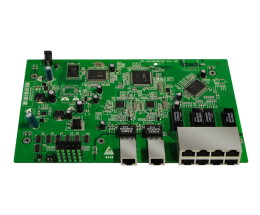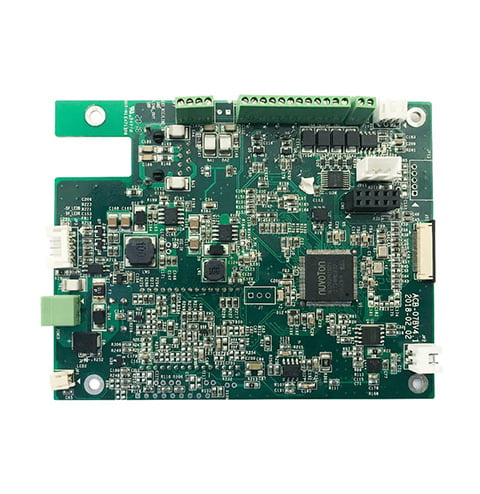PCB Assembly in Poland: A Comprehensive Guide to Finding the Best Services
If you’re looking for high-quality PCB assembly services, Poland is a great place to start. With a growing reputation for excellence in electronics manufacturing, Poland is home to a number of companies that can provide you with the PCB assembly services you need to take your project to the next level. Whether you’re looking for a quick turnaround on a small batch of boards or need a partner for a large-scale production run, you’re sure to find a company in Poland that can meet your needs.

One of the biggest advantages of working with a PCB assembly company in Poland is the country’s highly skilled workforce. With a strong tradition of engineering and technical education, Poland has a large pool of talented workers who are well-equipped to handle even the most complex PCB assembly projects. In addition, many PCB assembly companies in Poland have invested heavily in state-of-the-art equipment and facilities, meaning that they can deliver high-quality results quickly and efficiently.
Another advantage of working with a PCB assembly company in Poland is the country’s favorable business environment. With a stable political climate, a business-friendly regulatory environment, and a well-developed infrastructure, Poland is an attractive location for companies looking to do business in Europe. In addition, many PCB assembly companies in Poland offer competitive pricing and flexible terms, making it easy to find a partner that can meet your needs and fit your budget.
Overview of PCB Assembly in Poland

Poland has emerged as a popular destination for PCB assembly due to several advantages it offers. The country has a highly skilled workforce, competitive labor rates, and a favorable business environment. Additionally, Poland has a strategic location in Europe, making it an ideal hub for businesses to serve the entire continent.
Poland has a well-established electronics industry with a focus on high-quality manufacturing. The country has a large pool of experienced engineers and technicians who possess the necessary skills to produce complex PCB assemblies. Furthermore, many Polish companies invest heavily in research and development, which helps them stay at the forefront of technological advancements.
Poland’s PCB assembly industry is diverse and caters to a wide range of applications. Companies in the country offer various services, including design, prototyping, and assembly. Some of the top PCB assembly companies in Poland include PCB Connect, Assel, and Micro-Pro. These companies have a proven track record of delivering high-quality PCB assemblies to clients across various industries.
In summary, Poland’s PCB assembly industry offers several advantages that make it an attractive destination for businesses looking to outsource their PCB assembly needs. The country’s skilled workforce, competitive labor rates, favorable business environment, and strategic location make it an ideal choice for businesses looking to serve the European market.
Key Players in Poland’s PCB Assembly Market

Poland has emerged as a major player in the global PCB assembly market due to its highly skilled workforce, competitive pricing, and modern infrastructure. In this section, we will discuss the key players in Poland’s PCB assembly market, including local manufacturers and international partnerships.
Local Manufacturers
One of the most prominent local manufacturers in Poland’s PCB assembly market is PCB Connect. With over 20 years of experience in the industry, PCB Connect specializes in the production of high-quality PCBs for a range of applications. They offer a wide range of services, including design, prototyping, and assembly. Another local manufacturer worth mentioning is EAE Elektronik, which provides a high-quality component assembly service on PCB boards. They have a strong focus on quality and reliability, ensuring that the final product meets the highest standards.
International Partnerships
In addition to local manufacturers, Poland’s PCB assembly market has also seen an increase in international partnerships. One such partnership is between the Polish company Fideltronik and the German company Zollner Elektronik AG. This partnership has allowed Fideltronik to expand its operations and offer a wider range of services to its customers. Another notable partnership is between the Polish company Jabil and the American company Celestica. This partnership has helped Jabil to expand its global reach and offer its customers a wider range of services.
Overall, Poland’s PCB assembly market is home to a diverse range of local manufacturers and international partnerships, making it a highly competitive and attractive destination for businesses looking to outsource their PCB assembly needs.
Technological Capabilities
Poland’s PCB assembly industry has a range of technological capabilities, making it a top choice for companies looking to outsource their PCB assembly needs. Here are some of the key capabilities you can expect from PCB assembly companies in Poland:
Surface Mount Technology
Surface mount technology (SMT) is a popular method of PCB assembly that involves mounting components directly onto the surface of the PCB. This method is often used for smaller components and is known for its speed and efficiency. PCB assembly companies in Poland have extensive experience with SMT and can handle even the most complex SMT assemblies.
Through-Hole Technology
Through-hole technology (THT) involves mounting components through holes in the PCB. This method is often used for larger components or components that require more stability. PCB assembly companies in Poland have the expertise and equipment to handle THT assemblies with ease.
Mixed Assembly Techniques
Many PCB assemblies require a combination of SMT and THT components. PCB assembly companies in Poland have experience with mixed assembly techniques and can provide high-quality assemblies that meet your exact specifications.
In addition to these capabilities, PCB assembly companies in Poland also offer a range of additional services, such as testing and inspection, conformal coating, and box build assembly. With their advanced technological capabilities and commitment to quality, PCB assembly companies in Poland are a top choice for companies looking to outsource their PCB assembly needs.
Quality Standards and Certifications
When it comes to PCB assembly, quality is of utmost importance. Poland’s PCB assembly industry is known for its high-quality standards and attention to detail. Many PCB assembly companies in Poland are certified to international quality standards such as ISO 9001 and ISO 14001, ensuring that their products meet the highest standards of quality and reliability.
ISO Certifications
ISO 9001 is a quality management system standard that ensures companies have a systematic approach to managing their processes and delivering quality products and services. This certification is important for PCB assembly companies as it ensures that they have a quality management system in place that meets international standards.
ISO 14001 is an environmental management system standard that ensures companies have a framework in place to manage their environmental responsibilities. This certification is important for PCB assembly companies as it ensures that they are committed to minimizing their environmental impact and complying with environmental regulations.
IPC Standards
IPC is a global trade association that sets standards for the electronics industry. The IPC standards cover a wide range of topics related to PCB assembly, including design, materials, assembly, and testing. PCB assembly companies in Poland adhere to IPC standards to ensure that their products meet the highest standards of quality and reliability.
IPC Class 2 and Class 3 are the most common standards used in the electronics industry. Class 2 is for products that have a lower level of reliability requirements, while Class 3 is for products that have a higher level of reliability requirements. PCB assembly companies in Poland are certified to both Class 2 and Class 3 standards, ensuring that they can meet the needs of a wide range of customers.
In conclusion, PCB assembly companies in Poland take quality seriously and adhere to international standards to ensure that their products meet the highest standards of quality and reliability.
Cost Considerations and Competitive Advantages
When it comes to PCB assembly, cost is always a key consideration. Fortunately, Poland offers competitive pricing without sacrificing quality. The country’s lower cost of living and labor costs compared to Western Europe and the US make it an attractive option for businesses looking to reduce their expenses.
In addition to cost savings, Poland’s PCB assembly industry has several competitive advantages. For example, many companies in Poland offer a wide range of services, including design, prototyping, and assembly. PCB Connect, for instance, has over 20 years of experience in the industry and is known for producing high-quality PCBs for various applications. They offer design and prototyping services, as well as assembly services for both lead-free and leaded manufacturing.
Another advantage of PCB assembly in Poland is the country’s skilled workforce. Many companies in Poland have IPC-certified trainers who ensure that employees are trained to the highest industry standards. This means that businesses can expect high-quality workmanship and attention to detail from their Polish PCB assembly partners.
Poland’s central location in Europe is another advantage for businesses looking to outsource their PCB assembly needs. The country has an extensive transportation network, making it easy to ship products to customers throughout Europe and beyond.
Overall, Poland’s PCB assembly industry offers competitive pricing, a skilled workforce, and a wide range of services, making it an attractive option for businesses looking to outsource their PCB assembly needs.
Future Trends in Polish PCB Assembly
Polish PCB assembly industry is growing at a rapid pace, and it is expected to continue to grow in the future. With the advent of new technologies and innovations, the industry is poised to experience significant changes in the coming years. In this section, we will discuss some of the future trends in Polish PCB assembly.
Innovation and R&D
Innovation is the key to success in the PCB assembly industry. As the demand for high-quality PCBs continues to rise, companies are investing heavily in research and development to stay ahead of the competition. In Poland, several companies are focused on innovation and R&D to improve their products and services.
One of the key areas of innovation is the use of new materials. Companies are experimenting with new materials that can improve the performance and durability of PCBs. For instance, organic materials are becoming increasingly popular due to their flexibility, cost-effectiveness, and low environmental impact. Companies are also exploring the use of nanomaterials, which can improve the conductivity of PCBs.
Another area of innovation is the integration of IoT technology. IoT devices are being used in practically every industry, and the PCB assembly industry is no exception. Companies are developing PCBs that can support IoT devices, which can improve the efficiency and performance of various systems.
Sustainability Initiatives
Sustainability is a growing concern in the PCB assembly industry. Companies are taking steps to reduce their environmental impact and promote sustainable practices. In Poland, several companies are implementing sustainability initiatives to reduce waste, conserve energy, and promote recycling.
One of the key sustainability initiatives is the use of green energy. Companies are investing in renewable energy sources such as solar and wind power to reduce their carbon footprint. They are also implementing energy-efficient practices such as LED lighting and HVAC systems.
Another area of focus is waste reduction. Companies are implementing waste reduction programs to minimize the amount of waste generated during the PCB assembly process. They are also promoting recycling programs to reduce the amount of waste that ends up in landfills.
In conclusion, the future of Polish PCB assembly is bright. With a focus on innovation and sustainability, companies are poised to take advantage of new technologies and trends to improve their products and services. By staying ahead of the curve, they can continue to meet the growing demand for high-quality PCBs while promoting sustainable practices.






